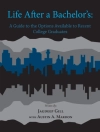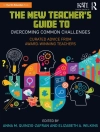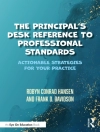Psychology’s contribution to education has produced a persuasive and burgeoning literature willing to measure (e.g. intelligence quotients), categorise (e.g. learning and/or behavioural diffi culties) and pathologise (e.g. psychiatric disorders) students across learning contexts. Practices like these pervade relationships existing between psychology and education because they share in common certain views of people and the worlds in which they learn. There is however increased acknowledgement that contemporary practice demands alternate ways of working. As learning communities and educators endeavour to make a difference in peoples’ lives, they are critically questioning how their use of psychology in education constitutes future possibilities for personhood and psychosocial action. In this book, a group of respected international scholars examine controversies presently facing the enduring relationship between psychology and education. The book will appeal to readers who are interested in the innovative development and application of psychological theories and practices in/to education. The book will be of interest to transnational audiences and is accessible to scholars and students in disciplines including psychology, education, sociology, social work, youth studies, public and allied health.
The volume includes contributions from: Tom Billington, Christopher Boyle, Lise Bird Claiborne, Tim Corcoran, Greg Goodman, Jack Martin, Athanasios Marvakis and Ioanna Petritsi, Jace Pillay, Isaac Prilleltensky, Anna Stetsenko, Jeff Sugarman and Stephen Vassallo with a Foreword by Ben Bradley.
Tim Corcoran is Senior Research Fellow and Senior Lecturer in Critical Psychology at The Victoria Institute, Victoria University, Melbourne, Australia. He has extensive experience in educational psychology both as a school psychologist and researcher/academic. His work has involved teaching, research and professional practice in Australia, the UK, Singapore and Iraq.
Daftar Isi
Foreword; Introduction; The Potential of Critical Educational Psychology Beyond its Meritocratic Past; Education as Transformation: Why and How; Heterotopics: Learning as Second Nature; Neo-Foucaultian Approaches to Critical Inquiry in the Psychology of Education; School Sucks! Deconstructing Taylorist Obsessions; ‘What’s the Score’ with School Psychology: Do we Carry on Regardless or is There any Added Value?; Challenges Educational Psychologists Face Working with Vulnerable Children in Africa: Integration of Theory and Practice; Towards a Critical Relational Educational (School) Psychology: Clinical Encounters; Solidarity, not Adjustment: Activism Learning as (Self-) Transformation; The Entanglement of Thinking and Learning Skills in Neoliberal Discourse: Self, Self-Regulated Learning, and 21st Century Competencies; Psychologism, Individualism and the Limiting of the Social Context in Educational Psychology; Transfromative Activist Stance for Education: The Challenge of Inventing the Future in Moving Beyond the Status Quo; Index.












